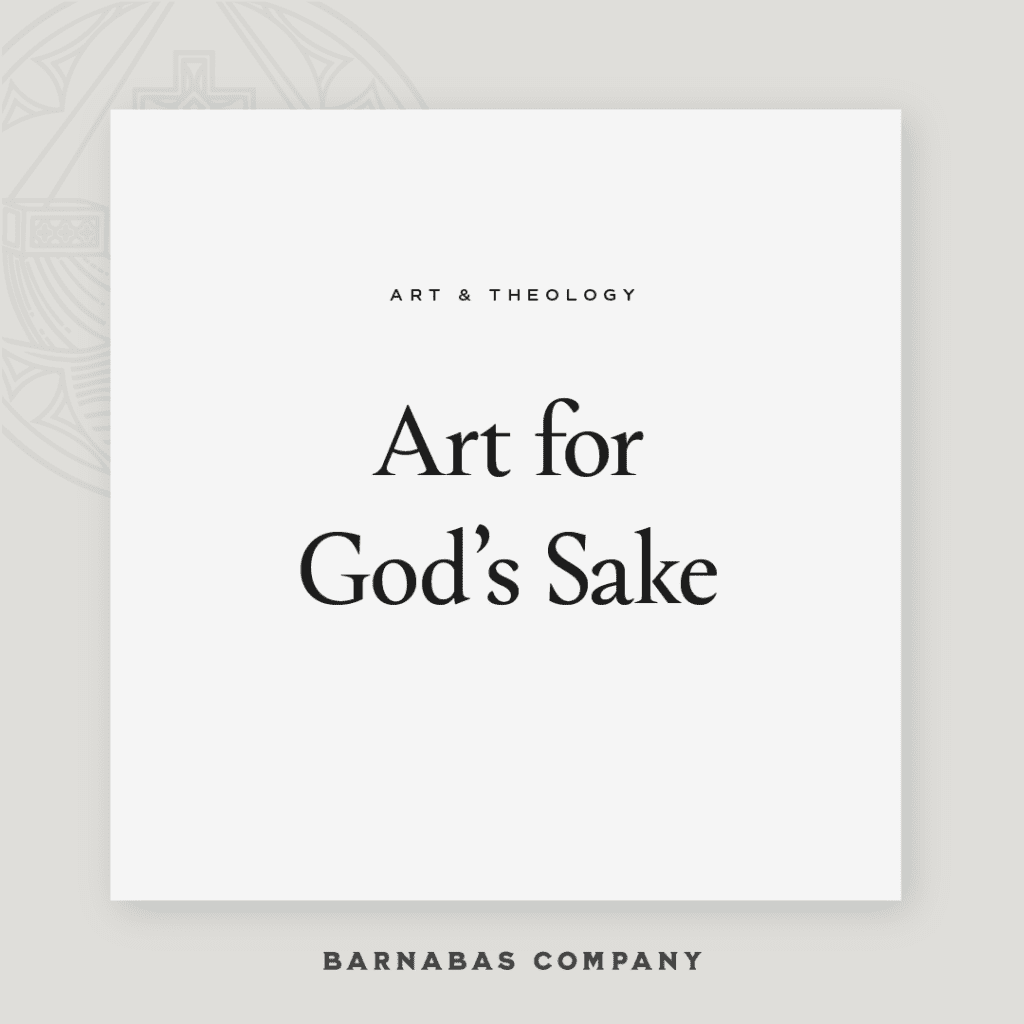Lately I’ve been reading Leland Ryken’s book, Art for God’s Sake. It’s a fascinating little work, especially since he cites the likes of Calvin to under gird his claim of the importance of art in the life of the church.
“All the arts come from God and are to be respected as divine inventions.”
John Calvin
But Ryken goes straight to the heart of the matter (and is my experience, is absolutely correct) when he says,
If anything, things are even more difficult for Christian artists. Some churches do not consider art a serious way to serve God. Others deny that Christians in the arts have a legitimate calling. As a result, Christian artists often feel like they have to justify their existence. Rather than providing a community of support, some churches surround them with a climate of suspicion.

What’s more, Scripture literally says that these artists were called by name (Ex. 31:2, 6), Bezalel and Oholiab, as God’s personal choice for His holy work. Ryken described their labor like this:
Taken together, “skill, ability and knowledge” refer to what the artist is thinking in his mind and feeling in his heart, as well as to what he is making with his hands. The artistic work that Bezalel and Oholiab did came from their whole persons.
Moses, prophet though he was, was neither called not gifted for this work. His ministry was one of prophecy, of preaching the Law but theirs was to follow his direction (Acts 7:44), to bring forge the types and shadows into a tabernacle made with hands. The tabernacle needed Moses and it needed artists. It’s an amazing point to consider. In order to fulfill its divine function, God’s holy dwelling had to be made by the best artisans, and with the finest materials. These men did not merely “prettify” the tabernacle, they traced the design of patterns that would ultimately point us to Christ (Hebrews 9:11). It was, quite literally, art for God’s sake.
Obviously, this is not the call of all, or even most, artists. This was a one time calling for men born at a particular place and time. Indeed,
At the same time, we need to realize that God gave these men a unique calling, and that therefore not everything in their experience is normative for all Christian art. Nevertheless, this passage teaches at least four fundamental principles for a Christian theology of the arts: (1) the artist’s call and gift come from God; (2) God loves all kinds of art; (3) God maintains high standards for goodness, truth, and beauty; and (4) art is for the glory of God.
None of this is to suggest that art should take the place of Scripture or preaching in the church. Not at all. Rather, it is to make the point that art has an important place and function within the life of the believer and into the culture around him. Ryken explained it this way:
Using Exodus 31 as a guide-and this is our third principle for thinking Christianly about the arts-God’s aesthetic standards include goodness, truth, and beauty. And these standards are not relative; they are absolute. A Christian view of art thus stands in opposition to the postmodern assumption that there are no absolutes.
